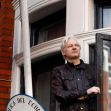In yet another twist in an almost decade-long espionage case against WikiLeaks founder Julian Assange, 49, a UK court ruled he can appeal his extradition to the US. Assange’s attorneys successfully argued it would be harmful to his mental health to return to the US via extradition to face espionage charges and possible prison.
If extradited to the US, Assange would face serious charges under The Espionage Act for his role in obtaining and publishing secret government documents. In 2019, Assange was indicted on 17 counts of violating the Espionage Act and conspiring to hack government computers in 2010 and 2011. If convicted in the US, he could face up to 175 years in prison.
This successful appeal by Assange’s attorneys follows last month’s decision by a lower court that stated he could be extradited to the US.
The reversal of the extradition decision on Monday was due to persuasive arguments made in court by his lawyers, who painted a picture of grim, violent and dangerous conditions in US prisons. Attorneys argued Assange would not be safe during his detention and that his mental health might not survive prison conditions.
Lord Chief Justice Ian Burnett of the High Court agreed. In his announcement of his ruling not to extradite Assange, the judge added that he supported a new appeal from the British Supreme Court under specific guidelines. Justice Burnett said he would need the Supreme Court to guarantee Assange would be treated “humanely” in US detention and prison since he is at extreme risk due to his mental health.
However, the chief justice did not agree, as attorneys have argued, that the US was seeking to extradite Assange due to political reasons or that his extradition was an infringement of freedom of the press. Justice Burnett said he based his decision to allow Assange’s appeal to be extradited to the US due to the defendant’s fragile mental health and the possibility of his reaction, or suicide, when facing harsh imprisonment in America.
Previously, a lower court considering Assange’s case decided American prisons are “too harsh” for Assange, noting the risk he may be driven to suicide. In July 2021, the Biden Administration promised the UK court that Assange would never be isolated or kept in severe confinement as high-security prisoners are and, if convicted, he could serve out his sentence outside of the US.
In the decision summary, the court stated, “The United States has also provided an assurance that the United States will consent to Mr. Assange being transferred to Australia to serve any custodial sentence imposed on him.”
During the same 2021 case, Vanessa Baraitser of the lower court Westminster Magistrates’ Court said, “The mental condition of Mr. Assange is such that it would be oppressive to extradite him to the United States” given the severe conditions of American prisons. As part of the agreements made between the lower court and the Biden Administration, assurances were made that if Assange were extradited, he would not be kept in isolation or solitary confinement and not be imprisoned at the Florence, Colorado Supermax prison.
Currently, with the new High Court’s decision, Assange is more easily able to be heard by the British Supreme Court, to appeal any future extradition to the US.
In the US, if Assange is extradited for violating The Espionage Act, courts will face numerous thorny issues considering the First Amendment, and the complications the free press would face if he is found guilty. The case against the WikiLeaks founder may be treacherous for journalists who write and publish investigative pieces, often about national security issues.
When Assange was charged in 2019 with 17 counts of violating the Espionage Act, Jameel Jaffer of the Knight First Amendment Institute at Columbia University stated in a New York Times interview that the “charges rely almost entirely on conduct that investigative journalists engage in every day. The indictment should be understood as a frontal attack on press freedom.”






